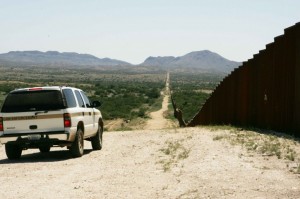
The immigration crisis brings to the forefront many issues that have long festered in the body politic.
It involves the future of an order inside a nation, which today is fragmented and polarized without a clear course ahead. What is at stake is not just the composition of who makes up the nation, but the very idea of what kind of nation we want to be.
And so, in the face of the immigration crisis, we need to ask what kind of nation do we want to be? There no longer is a single response.
![]() Free Book: Return to Order: From a Frenzied Economy to an Organic Christian Society—Where We’ve Been, How We Got Here, and Where We Need to Go
Free Book: Return to Order: From a Frenzied Economy to an Organic Christian Society—Where We’ve Been, How We Got Here, and Where We Need to Go
There are those who simply do not want to be a nation at all. In postmodern times, they consider the nation-state outdated. Across the political spectrum, many want to be free from the restraints of belonging to an organized polity. To these, America should be what philosopher Alasdair MacIntyre calls “nothing but a meeting place for individual wills, each with its own set of attitudes and preferences and who understand that world solely as an arena for the achievement of their own satisfaction.” Any notion of a common good or identity is rejected outright.
Those favoring this non-nation America see immigrants as just more “individual wills” meeting in pursuit of happiness. They believe that if life is a universal global party, then all must be invited. Every barrier should be leveled and border opened. Some claim markets will ensure all get their opportunity to live for their own satisfaction. Others trust more in government programs and entitlements.
Clearly this vision that sees no need for an American identity is not what America should be.
There is a second group of people who want to be a nation modeled on a co-op or shareholding company. To them, the nation represents advantages for which they are willing to work. Like a shareholding firm, the American co-op is full of legitimate benefits with distributed risks, voting privileges, few liabilities, and plenty of recreational opportunities. As long as an atmosphere of well-being and happiness exists, members renew their membership with great enthusiasm. But when times are rough, many withdraw their support and become bitter and critical of the nation.
[like url=https://www.facebook.com/ReturnToOrder.org]
In good times, this group sees immigration as something that brings more shareholders into the system and they are welcomed. But in bad times, immigration is a threat to the well-being of the co-op. It threatens to overwhelm the system and put everyone’s future in jeopardy. These Americans are torn by the contradiction of being the sons of needed immigrants and the foes of unneeded ones. They are left confused and guilty.
Such a model of self-interest that shrinks from adversity is also not what America should be.
There is a third group that wants to be a nation that is modeled as a people. This sector has nothing in common with nationalist incarnations that deify the nation and distort its meaning. Rather, these are people that sense that America is not just “a meeting place of individual wills” or a prosperous cooperative venture with legitimate benefits. America is more like a family, where all share its inherent responsibilities, duties and privileges. They understand it is not our massive economic power but our moral fiber that makes America great. These Americans perceive that the foundations of our American order are based upon institutions from our Christian past like the rule of law, representative government and the norms of justice and charity.
These same Americans also realize that this order is under attack on all sides and express a willingness to sacrifice and fight, even to give their very lives, so that it might not falter. They love America and ask that God bless her.
What Does Saint Thomas Aquinas Say About Marriage?
For these Americans, immigration represents a challenge. Their generous hearts have always welcomed immigrants, but they ask in return that those who come respect our institutions and contribute to the moral fiber that makes America great. Let them not be criminal elements or those who do not follow the rule of law. They must desire to become members of the family, distinct yet fully integrated into our ways. Let them love this country and join in the ranks of those who fight for our threatened order.
Such sentiments should be the basis of a sound immigration policy. This kind of America can confront a crisis. This is the nation that we need to be.


